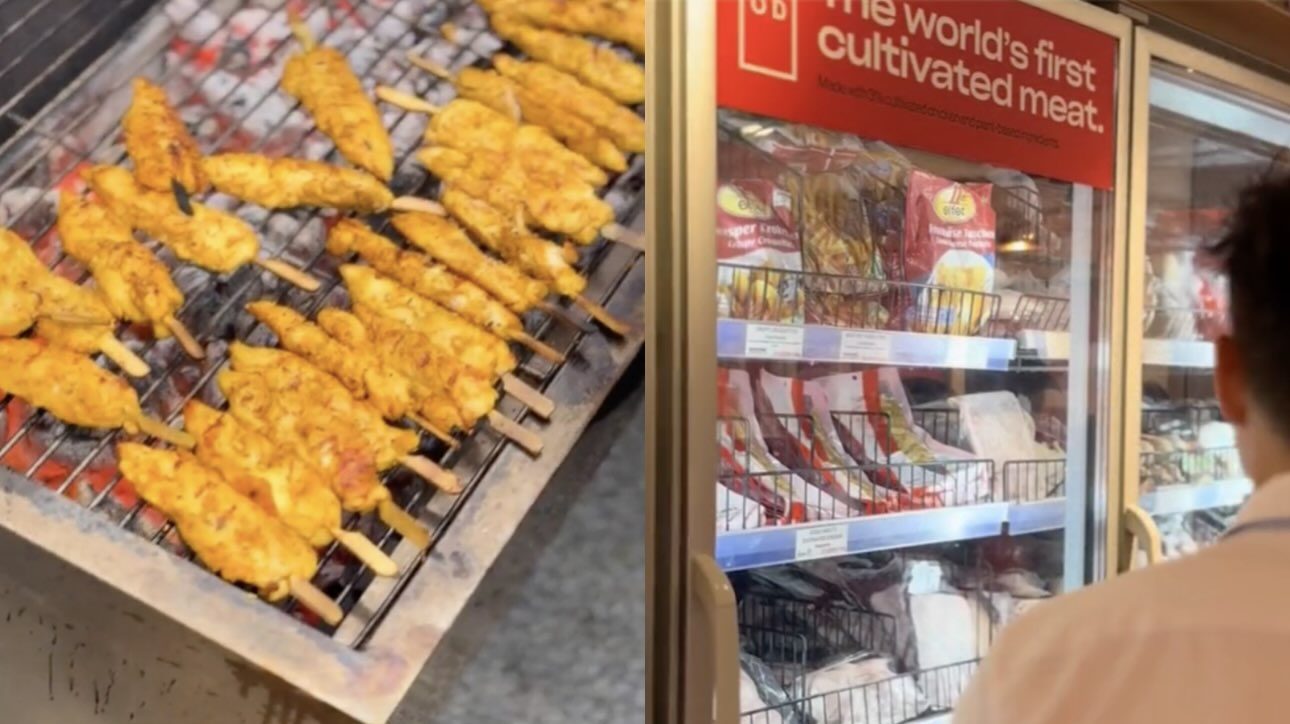SINGAPORE: The Little Red Dot has become number one in developing cultivated or lab-grown meat, especially with Huber’s Butchery on Dempsey Road making history when it started selling cultivated chicken last month.
Although there’s been a demand for this type of meat, available only in a handful of pricey eateries in Singapore and the United States, others have grown wary and even skeptical of the technology.
@hubersbutcheryandbistro 🎉 Celebrating the newly refurbished, contemporary look of Huber’s Butchery and Bistro! 🎉 We were thrilled to welcome our media friends to an exclusive grand opening event. They enjoyed a special tour of our facility, learning about our sustainable practices and the latest version of cultivated chicken from GOOD Meat. The evening was unforgettable, filled with delicious food, great music, and wonderful company. A heartfelt thank you to Gastro Sense for their incredible support in making this event a success, and to everyone who joined us in celebrating this milestone! hubersbutchery meatlover dampsy #singaporefoodie
This has been reflected in investor interest, which fell from US$922 million (S$1,248 million) in 2022 to US$226 million (S$306 million) last year. Moreover, Italy has banned cultivated meat, as have Florida and Alabama in the US.
The technology shows great promise for the environment, but manufacturing lab-grown meat is still very costly. The best thing that can be done for the industry is to invest more funds in research and development, as well as manufacturing.
Singapore, is the exception rather than the rule.
The country has been determined to develop no-slaughter meat with animal cells grown in bioreactors.
“The biggest obstacle to cultivated meat reaching the masses… is the broad underinvestment in R&D and manufacturing infrastructure, especially from governments,” the managing director of the nonprofit Good Food Institute Asia Pacific, Mirte Gosker, is quoted as saying in Rest of World.
Five years ago, Singapore said it would reduce its reliance on exports and locally produce 30 per cent of its nutritional needs by 2030.
One of the strategies the Singapore Food Agency (SFA) has adopted as part of its “30 by 30” vision is exactly that— to provide funding for innovative research projects in sustainable urban food production, including “future foods” through the Singapore Food Story R&D Programme with its allotment of S$309 million.
Ms Gosker also said that Singapore “can serve as the place where companies from all around the world come to work with top-tier research agencies and food-tech partners to refine their formulations, eliminate inefficiencies in their manufacturing process, and explore new techniques and ingredients that could help them drive down costs.”
In early April, Vow, a lab-grown meat company from Australia, received regulatory approval from the SFA to produce and sell the world’s first cultivated quail meat.
The company’s co-founder and chief executive, George Peppou, called Singapore the “perfect spot” for launching their product, citing the speed of gaining official approval as the main reason why.
While the company has an application in the US as well, it has no plans of launching there, given the market’s costliness and how “politically sensitive” it is. /TISG

